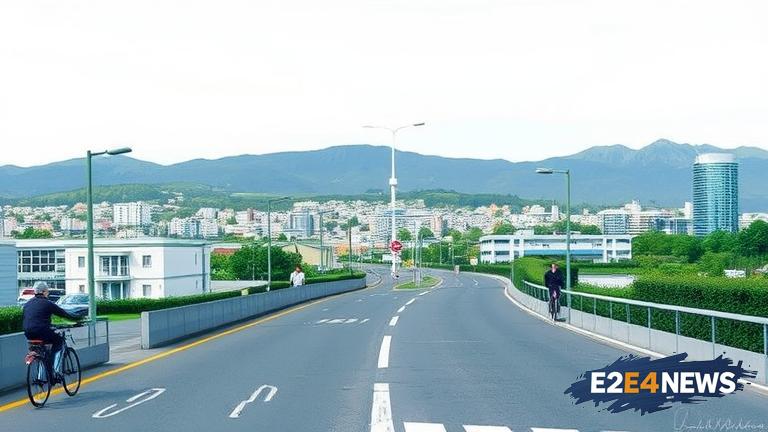The Wellington City Council has recently announced a proposal for a new cycling network, which aims to enhance the city’s cycling infrastructure and promote a safer and more enjoyable experience for cyclists. The proposed network includes a range of new cycleways, bike lanes, and other cycling facilities, designed to connect key destinations and neighborhoods across the city. According to the council, the new network will provide a more comprehensive and connected cycling system, making it easier for people to get around the city on two wheels. The proposal is part of the council’s efforts to reduce traffic congestion, improve air quality, and promote a more sustainable and healthy transport system. The new cycling network will also include improved safety features, such as dedicated cycle lanes, advanced stop boxes, and improved lighting. The council has stated that the proposed network will be designed to cater to cyclists of all ages and abilities, from beginner to experienced riders. The proposal has been welcomed by local cycling groups and advocates, who have long been calling for improved cycling infrastructure in the city. However, some residents have expressed concerns about the potential impact on parking and traffic flow. The council has assured that the proposal will be subject to a thorough consultation process, which will involve seeking feedback from the community, businesses, and other stakeholders. The consultation process is expected to begin soon, with the council encouraging everyone to have their say on the proposed cycling network. The council has also stated that the proposal will be designed to be flexible and adaptable, with the ability to make changes and adjustments as needed. The new cycling network is expected to be implemented over the next few years, with the council allocating significant funding for the project. The proposal is seen as a major step forward for cycling in Wellington, and is expected to have a positive impact on the city’s transport system and environment. The council has also announced plans to improve cycling education and training programs, to help promote a culture of safe and responsible cycling. Additionally, the council will be working with local businesses and organizations to promote the use of cycling as a mode of transport, and to encourage more people to take up cycling as a hobby or form of exercise. The proposal has been praised by local health and environmental groups, who see the benefits of cycling as a way to improve public health and reduce carbon emissions. Overall, the proposed new cycling network is a significant development for Wellington, and is expected to have a major impact on the city’s transport system and environment.
